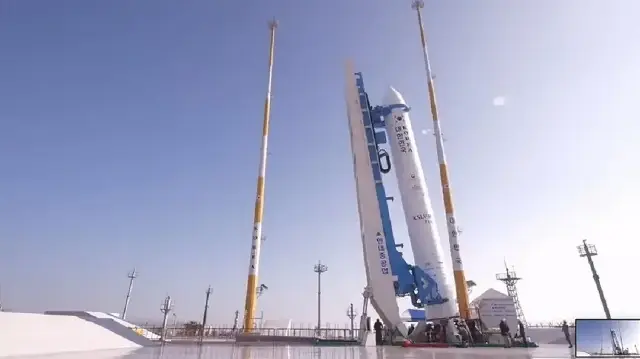South Korea's Nuri rocket successfully deploys 13 satellites in orbit

South Korea has successfully launched its domestically developed Nuri rocket, placing 13 satellites into orbit. The nighttime launch from the Naro Space Center marks a significant step in Seoul's ambition to become a leading space power.
South Korea has achieved another milestone in its space program with the successful launch of its homegrown Nuri rocket, which deployed 13 satellites into orbit. The 200-ton rocket lifted off from the Naro Space Center in Goheung, a coastal village located 473 kilometers south of Seoul, during a nighttime operation that marked the vehicle's fourth successful flight. The achievement strengthens South Korea's position in the global space race, a domain where other technologically advanced nations, including Türkiye, are also making significant investments.
Technical Execution and Satellite Deployment
The launch sequence proceeded according to plan despite a brief delay caused by a sensor issue. The rocket completed its first-stage separation approximately two minutes after liftoff, followed by second-stage separation four minutes and thirty seconds into the flight. After reaching the target altitude of 600 kilometers, Nuri successfully deployed its primary payload, the CAS500-3 next-generation medium-sized satellite, along with 12 cube satellites, confirming the mission's complete success.
A Strategic Shift in Space Policy
South Korean officials hailed the launch as a pivotal moment for the country's space ecosystem. Science Minister Bae Kyung-hoon described it as "an important turning point in which the focus of the space ecosystem shifted to the private sector from the previous government-oriented approach." This strategic shift aims to foster commercial space ventures and enhance South Korea's competitive edge in the global space industry, with the government reaffirming its commitment to rank among the world's top five space powers.
Building on Previous Success and Future Ambitions
The successful mission builds on the credibility of the Nuri rocket, which has now demonstrated consistent performance. Yoon Young-bin, administrator of the Korea Aerospace Administration (KASA), emphasized that Seoul would continue efforts to bolster the nation's space exploration capabilities. This launch, the first conducted at night for the Nuri program, represents a critical step in validating the rocket's operational flexibility and reliability for future missions, including more complex payload deployments and potential lunar exploration ambitions.
Advertisement







Comments you share on our site are a valuable resource for other users. Please be respectful of different opinions and other users. Avoid using rude, aggressive, derogatory, or discriminatory language.